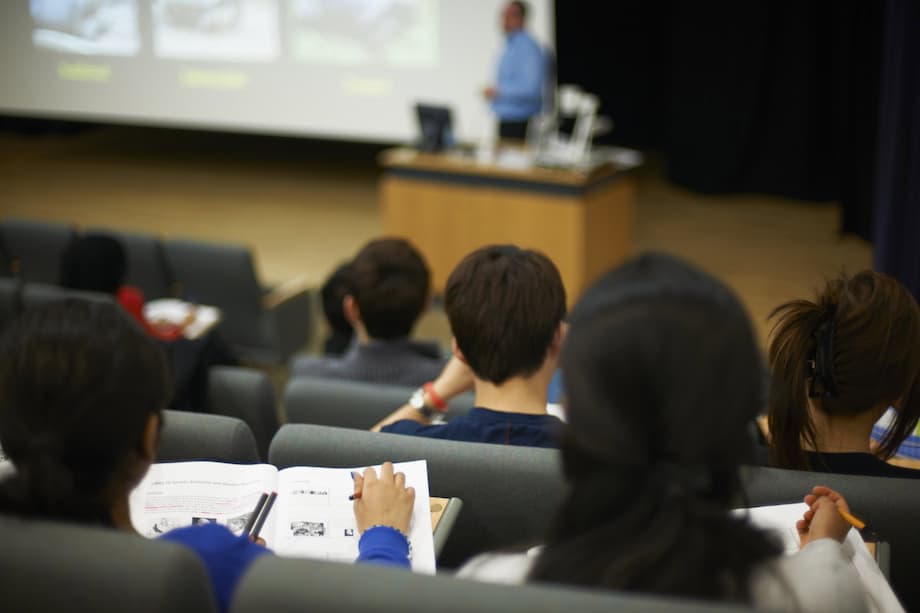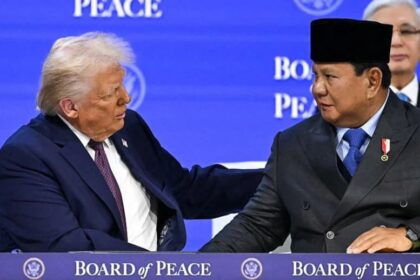China’s Growing Influence on UK Universities: A Threat to Academic Freedom?
In recent years, the United Kingdom’s world-renowned universities have found themselves at the center of a heated debate over academic freedom, foreign influence, and the integrity of higher education. At the heart of the controversy lies China’s expanding role in British academia—through both its students and substantial financial investments. Reports from transparency groups, parliamentary committees, and investigative journalists paint a complex picture of how Beijing’s interests may be shaping research agendas, classroom discussions, and even the personal safety of scholars and students.
- China’s Growing Influence on UK Universities: A Threat to Academic Freedom?
- How Are Chinese Students and Scholars Pressured in the UK?
- Financial Dependency: How Chinese Money Shapes UK Academia
- Confucius Institutes and Chinese Student Associations: Cultural Exchange or Political Influence?
- Official Responses: Denials, Reforms, and Calls for Vigilance
- Broader Implications: Academic Freedom, National Security, and the Future of UK-China Relations
- In Summary
As the UK government enacts new laws to safeguard free speech on campus, the question remains: how deep does China’s influence run, and what are the broader implications for academic independence and national security?
How Are Chinese Students and Scholars Pressured in the UK?
One of the most alarming findings from recent investigations is the pressure placed on Chinese students and academics in the UK to monitor and report on their peers. According to a survey by the UK-China Transparency (UKCT) think tank, some Chinese students have been asked by officials from their home country to spy on classmates, especially regarding discussions on topics sensitive to the Chinese Communist Party (CCP). These include issues such as the treatment of Uyghurs in Xinjiang, the status of Taiwan, the Hong Kong protests, and the origins of Covid-19.
Academics interviewed for the UKCT report described a climate of fear and self-censorship. Some students of Chinese nationality confided in their lecturers that they had been approached by CCP officials with requests to monitor classroom discussions. Others, regardless of nationality, reported feeling uncomfortable speaking freely about China-related topics, fearing their words might be relayed to authorities or result in repercussions for themselves or their families back in China.
One academic recounted being told by a visiting scholar from China, “We’re watching you,” while others described online harassment and warnings from Chinese officials. The report also found that family members of UK-based scholars had been threatened or harassed in China as a result of their research or public statements.
These revelations are not isolated. Multiple news outlets, including the BBC and Anadolu Agency, have reported similar patterns of surveillance and intimidation, with Chinese Students and Scholars Associations (CSSAs) and Confucius Institutes identified as key vectors for monitoring and suppressing dissent.
Impact on Classroom Discussion and Research
The chilling effect of these pressures is profound. Students and academics alike are discouraged from pursuing research or open debate on topics deemed sensitive by Beijing. Some have been denied funding or visas for research that might upset the CCP, while others have faced direct warnings from university administrators—sometimes motivated by concerns over institutional finances and relationships with Chinese partners.
As a result, entire areas of study, from human rights in Xinjiang to the history of Tiananmen Square, risk being marginalized or excluded from academic discourse. This not only undermines the principle of academic freedom but also distorts the knowledge base available to policymakers, the media, and the public.
Financial Dependency: How Chinese Money Shapes UK Academia
Beyond surveillance and intimidation, financial ties between UK universities and Chinese entities have emerged as a major source of concern. Over the past four years, top British universities—especially those in the elite Russell Group—have received nearly £50 million from Chinese sources, according to investigations by The Independent and the Sri Lanka Guardian. Oxford and Cambridge alone accounted for more than half of this sum, with funding coming from Chinese universities, technology companies like Huawei, and other organizations with links to the Chinese state or military.
Such financial support is not limited to research grants. Donations, scholarships, and joint ventures—including the establishment of Confucius Institutes—have become commonplace. In some cases, professorships and academic centers have been named after Chinese donors, raising questions about the potential for influence over research agendas and institutional priorities.
Sir Iain Duncan Smith, a former Conservative Party leader, has warned that this dependency risks “kowtowing towards China and its views,” stifling open debate on human rights abuses and other contentious issues. The concern is echoed by experts who note that universities’ reliance on international student fees—Chinese students now make up the largest foreign student group in the UK—creates powerful incentives to avoid offending Beijing.
Transparency and Due Diligence
Universities have defended their partnerships, insisting that all donations and collaborations are subject to robust approval processes and that academic independence is maintained. Oxford, for example, stated that funders have no influence over research or teaching. Cambridge emphasized that less than 1% of its annual research grant comes from China and that all grants are scrutinized for national security risks.
However, calls for greater transparency are growing. Academics and watchdogs have urged institutions to disclose the sources and terms of foreign funding, particularly when it involves entities linked to the Chinese government or military. The case of King’s College London’s China studies institute, funded by a single Hong Kong donor, has sparked debate over the need for openness about financial relationships that could affect academic integrity (Nikkei Asia).
Confucius Institutes and Chinese Student Associations: Cultural Exchange or Political Influence?
Confucius Institutes, established at dozens of UK universities, are officially billed as centers for promoting Chinese language and culture. However, critics argue that they serve as instruments of soft power for the Chinese government, with the potential to influence teaching content and suppress discussion of sensitive topics.
Reports from the UK Parliament’s Foreign Affairs Committee and independent think tanks have highlighted incidents where Confucius Institute officials allegedly confiscated academic papers mentioning Taiwan or pressured universities to cancel events related to Tibet and Hong Kong. The Chinese Students and Scholars Associations (CSSAs), present at most UK universities, have also been identified as channels for surveillance and political interference, sometimes coordinating with Chinese embassy officials.
While some university representatives have downplayed the scale of the problem, describing incidents as isolated rather than systematic, the cumulative evidence suggests a pattern of influence that extends beyond cultural exchange. The UK’s higher education regulator, the Office for Students (OfS), has announced plans to review Confucius Institutes under new free speech laws, with the power to fine universities millions of pounds for failing to protect academic freedom.
Reciprocal Influence: UK Campuses in China
The influence is not one-way. British universities operating campuses in China are required to host branches of the CCP, with party members often holding key administrative roles. According to a report by the China Strategic Risks Institute, every British university with a campus in China has a CCP branch embedded in its governance structure. This raises further questions about the ability of UK institutions to maintain academic independence and uphold free speech in environments where the CCP’s authority is paramount (The Times).
Official Responses: Denials, Reforms, and Calls for Vigilance
The Chinese embassy in London has consistently dismissed allegations of interference as “groundless and absurd,” insisting that China respects freedom of speech and academic freedom in the UK. Embassy spokespeople have reiterated that China adheres to a policy of non-interference in other countries’ internal affairs and expects its citizens abroad to follow local laws.
UK officials, however, are taking the issue seriously. The government has introduced new legislation requiring universities to actively promote and protect academic freedom, with the OfS empowered to investigate and penalize institutions that fail to do so. Science and Technology Secretary Michelle Donelan has emphasized the need for strong safeguards to protect research from foreign threats, while Skills Minister Jacqui Smith has declared academic freedom “non-negotiable” in the UK’s world-leading institutions.
Security agencies, including MI5 and the National Cyber Security Centre, have briefed university leaders on the risks of foreign interference, particularly in sensitive research areas with potential economic or military applications. The government is considering measures such as requiring security clearance for key university personnel, increasing transparency about funding sources, and enhancing security around research projects (Fortune).
Debate Within Academia
Not all voices within the academic community agree on the scale or severity of Chinese influence. Some university associations, such as Million Plus, have stated that they have not seen systematic evidence of a concerted campaign by China to undermine academic freedom. Others acknowledge that while incidents have occurred, they do not amount to a widespread or coordinated effort.
Nonetheless, the UK Parliament’s Foreign Affairs Committee and independent experts argue that even isolated incidents can have a chilling effect on academic discourse, especially when combined with financial dependencies and the threat of retaliation against scholars or their families.
Broader Implications: Academic Freedom, National Security, and the Future of UK-China Relations
The debate over China’s influence in UK academia is not just about individual incidents of censorship or intimidation. It raises fundamental questions about the role of universities in a globalized world, the balance between international collaboration and national security, and the protection of open inquiry in the face of authoritarian pressure.
Academic freedom is a cornerstone of democratic societies, enabling independent research, critical thinking, and the pursuit of truth. When universities become financially dependent on foreign governments or allow external actors to shape their research agendas, the risk is not only to the integrity of scholarship but also to the broader public interest. Sensitive research with potential military applications, for example, may be targeted by foreign states seeking to enhance their own capabilities.
The UK is not alone in facing these challenges. Similar debates are underway in Australia, New Zealand, the United States, and Canada, where universities have also grappled with the implications of Chinese funding, student surveillance, and political interference. Some countries have moved to ban or restrict Confucius Institutes and increase scrutiny of foreign donations to higher education.
As the UK government consults on new measures to protect academic freedom and research security, universities are under growing pressure to balance the benefits of international collaboration with the need to safeguard their independence and uphold democratic values.
In Summary
- Chinese students and academics in the UK have reported pressure to monitor and report on peers, leading to self-censorship and fear in classrooms.
- Financial ties between UK universities and Chinese entities have grown significantly, raising concerns about institutional dependency and influence over research agendas.
- Confucius Institutes and Chinese Students and Scholars Associations are identified as key channels for surveillance and political interference on UK campuses.
- British universities operating in China are required to host CCP branches, further complicating the issue of academic independence.
- The UK government has introduced new laws to protect academic freedom and is considering additional measures to safeguard research and transparency.
- Debate continues within academia over the scale and impact of Chinese influence, but experts warn that even isolated incidents can undermine open inquiry and democratic values.
- The broader implications touch on national security, the integrity of higher education, and the future of UK-China relations in an increasingly interconnected world.












